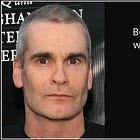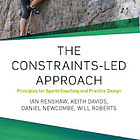Developing a Coaching Philosophy (part 2)
Sometimes having “that dog in you” isn’t helpful...
In the prologue for this series I wrote about the value of a coaching philosophy and in part one I shared how I began developing my own in earnest. In this part, I write about one place development can get stuck, as well as an example of how I managed to sidestep that. I encourage you to read the previous parts to understand the full story behind developing your learning philosophy.
This part of the series comes from when I read two very different books about motor learning. I wrote about each book in 2020. You can read those by clicking the previews below.
(In the prologue, I relied on an academic paper by David Grecic and Dave Collins, saying that they summarized a lot of other academic work. One of the papers they cite also summarizes a great deal of work in the related field of educational psychology. I’ll reference that paper by Marlene Schommer1 a couple of times.)
In part 1 of this series, I described how I slowly learned to rely on myself as a source of knowledge. While I think my coaching is better as a result of that shift, neither coaching nor learning became simpler. When I figured out that I didn’t have to only rely on the knowledge of others to grow as a coach, I couldn’t have foreseen how destabilizing that realization could be.
Seeking knowledge from both outside and inside of yourself instead of just outside has some psychological consequences. When you only look outside, learning is mainly a practice of transferring what others know into your brain. To make the search for knowledge easier, you’ll limit where you look to people in positions of authority and respect. But when you realize that you can create your own knowledge, you slowly figure out that everyone else, not just important people, can create knowledge too. Academically speaking, this is the shift from seeing knowledge as absolute to seeing it as relative. It means that knowledge becomes complex and tentative rather than black-and-white and handed down by an authority.
This shift is destabilizing because now you have to compare the knowledge you encounter in a very different way than you did when knowledge was absolute. If you consider learning to be absolute, then what you learn is either right or wrong but when you consider learning to be relative, then you assess what you learn by how well it fits with other knowledge. Let’s consider this in the context of two books, Motor Control and Learning: A Behavioral Emphasis by Richard A. Schmidt and Timothy D. Lee and The Constraints-Led Approach: Principles for Sports Coaching and Practice Design by Ian Renshaw, Keith Davids, Daniel Newcombe, and Will Roberts. These two books are useful for this discussion because they are both about a difficult topic, motor learning. The ways in which you might approach the topic can tell you about your learning philosophy.
Since motor learning is an intimidating field of study, many coaches learn as little about it as possible, relying instead on experienced coaches to tell them what they need to know about it in order to coach more effectively. This is an example of an absolute approach to knowledge because you are relying on authorities to tell you what should be learned. But getting from an absolute view of learning to a relativistic one isn’t a straightforward move.
The first part of this transition is recognizing that there are different sources of knowledge and those sources have different opinions about what is true. In my case, I found myself feeling more and more uncomfortable with how people in the volleyball community talked about motor learning and how knowledge from the field should be applied to the sport. It wasn’t so much that I disagreed with the tenets of motor learning, it was that I realized how little I actually knew about the topic. Further, I realized that what I did know (or thought I knew) had come from people just like me. I learned about it from coaches who had read some stuff or heard some stuff from other coaches. Before discussing how I managed that discomfort, let’s explore two ways that people will avoid the discomfort, which ultimately results in them getting stuck in the development of their learning philosophies.
When people are faced with multiple, and sometimes competing, sources of knowledge, they often have two different responses to the uncertainty that arises. The people that I was exposed to tended to respond to the uncertainty by opting for dogmatism, doubling down on the absolutist view of knowledge and taking the stance that, not only were their beliefs correct but that all others were, therefore, wrong. In the volleyball community at that time, Gold Medal Squared (GMS) was rising to prominence and their clinicians liberally used the term “the science” to refer to motor learning. People heard “the science” and saw the clinicians showing a new and different way to train that was better aligned with “the science”. In the face of uncertainty about how to think about learning and teaching, many coaches became followers of what they believed “the science” was. This change required them to adopt a dogmatic approach, in which everything they did was in line with the “laws of learning” and anything that didn’t follow that was wrong and should be called out as such. Coaches that didn’t find GMS concepts to their liking tended to react the same way, finding any way they could to refute or dismiss the other side. Both sides quickly dismissed their discomfort and uncertainty by accepting one view and they stopped considering other sources of knowledge as valid, which meant that they greatly limited their ability to learn going forward.
The other response that people have when faced with that uncertainty is skepticism. Instead of opting for choosing a specific side, they choose no side, “abandoning all efforts to evaluate information and resolving this…state by thinking anything goes” (Schommer, 1994). Instead of deciding that GMS was either right or wrong, they viewed the uncertainty as a sign that they could never know what was right or wrong. Coaches I saw that opted for skepticism didn’t change how they coached, they basically said, “who even knows anymore?” and kept doing what they had always done. Another way they expressed their skepticism was to clearly explain that what they did wasn’t influenced by GMS principles. They made it clear that they weren’t buying what was being sold to them but they also weren’t moving away from what GMS was doing. They were firm in their resolution to not be moved one way or the other, lest they appear to be influenced. As with those that dogmatically chose a side, this group of coaches intentionally chose to ignore sources of knowledge because they didn’t know how to resolve the discomfort and uncertainty that came with acknowledging multiple valid sources of information. They, too, effectively shut out sources of learning, stalling their development.
But you aren’t restricted to choosing dogmatic or skeptical thinking. I’ve already mentioned that another path exists, relativism. Dogmatic and skeptical thinkers dig their heels in but relative thinkers just start digging. They accept that knowledge isn’t absolute, but what does it mean for knowledge to be relative instead? Thinking relatively means viewing knowledge as complex, tentative, and often contested. But relative knowledge has to be relative to something, right?
Let’s look first at holding one way of knowing as relative to other ways of knowing. In the case of motor learning, it turns out that “the science” that GMS referred to is only one way of describing how learning to move and controlling movement may occur. But it’s hard to learn about other ways of knowing when you’re exposed to dogmatic thinking. I’m glad that I felt the discomfort I did when I was around dogmatic thinkers. That discomfort led me to read, first, a textbook about the information processing view of motor learning. That book helped me see for myself what “the science” actually was, instead of just accepting what other coaches told me about it. Because I sought out learning from multiple sources, I was able to evaluate them relative to one another. I wasn’t necessarily choosing what I thought was right or wrong, just seeing differences between what I was reading and what I was hearing. I kept adding sources of knowledge to evaluate by reading a motor learning book written from a different perspective, that of ecological dynamics. Ask yourself how diverse your sources of knowledge are. How well are you accumulating knowledge from varied sources? Ask yourself what makes the knowledge you encounter similar and what makes it different. This is how you continue to grow your philosophy of learning.
Using multiple sources of knowledge is only one aspect of relativism though. One set of knowledge is relative not only to other sets of knowledge but also to the environment from which it comes. Something I learned from my experience with Gallwey (see part 1 of this series) was that I knew my environment better than anyone else. That meant that I could compare my environment to Gallwey’s and make changes that would hopefully lead to teaching that fit better in my environment. But understanding the relative similarities and differences is challenging. Ask yourself about your environment and how you fit into it. What is it about you that helps you fit in as you do? This, too, is how you continue to grow your philosophy of learning.
As I said before, relying on different sources of knowledge, including yourself, is destabilizing. Comparing and contrasting sources of knowledge about motor learning was one challenge, but then I had to reconcile what I had learned with how I was coaching. What would my coaching look like when I used an information processing viewpoint? What would it look like if I coached from a constraints-led perspective? Working that out was, and still is, challenging. This is part of the practice of reflection.
There’s one last bit of relative thinking that matters though. In some ways, it makes coaching easier and it makes it harder in others, but it always makes coaching better. The last bit to address is considering learning relative to yourself. When I learned different perspectives on motor learning, I was learning my craft but I must also learn who I am. After I read the books (and a lot of academic papers), I still had to figure out which ways of coaching allowed me to do my most authentic coaching.
This part of the series is about how different philosophies of learning can manifest themselves and how I learned to collect different sources of knowledge. But there’s still two last pieces, perhaps the most important pieces, that we need to discuss. I’ll tackle those next.
Developing a Coaching Philosophy (part 3)
In the prologue for this series I wrote about the value of a coaching philosophy and in part one I shared how I began developing my own in earnest. In part two, I wrote about one place development can get stuck, as well as an example of how I managed to sidestep that. I encourage you to read the previous parts to understand the full story behind develop…
Schommer, M. (1994). Synthesizing Epistemological Belief Research: Tentative Understandings and Provocative Confusions. Educational Psychology Review, 6(4), 293–319.








